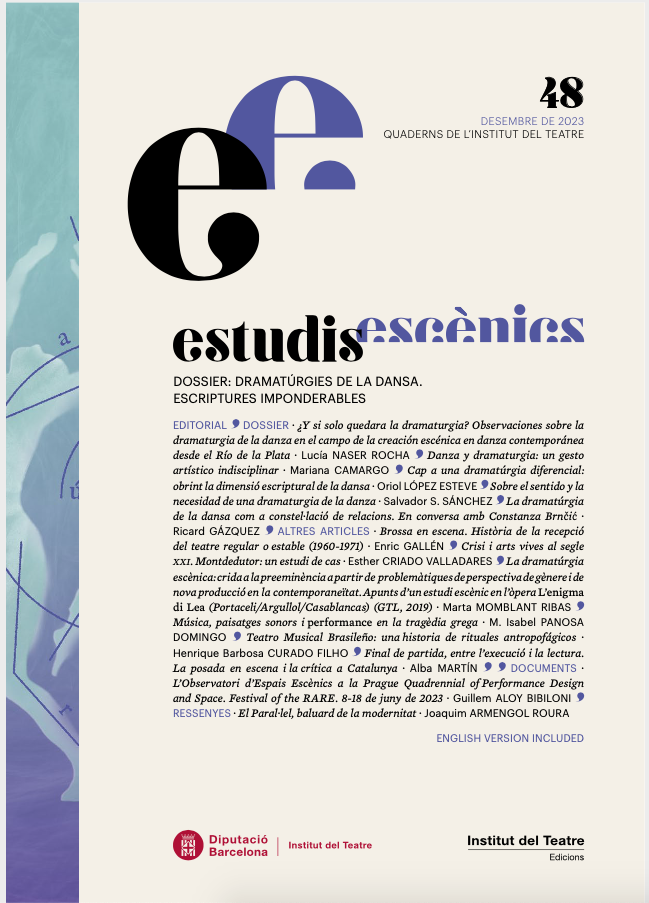Music, Soundscapes and Performance in Greek Tragedy
Paraules clau:
Greek Drama, Greek tragedy, Aeschylus, Sophocles, Performance, Ancient Greek Music, SoundscapesResum
This article analyzes the tragic text to extract systematic information about the performance of music and soundscapes in Aeschylean and Sophoclean tragedies. The results are compared with the musicological evidence and the theatrical devices and spaces, with their acoustic conditions for sound propagation. In the text, the background for the performance of sound is largely provided by nature and the phenomena triggered by the four elements as instruments of deities, as we can see in Greek mythology and the archetypal imaginary of ancient Greeks. Besides, there is human nature, which is revealed through the dramatic action itself and the expression of pain, emotion and passion by characters. In tragedy, these references are used as highlights within the narrative and resources for creating images or evoking soundscapes. Moreover, based on the Pythagorean conception, the universe would also have a sound translation in music as reflection of the harmony of the spheres. This philosophical consideration, which is linked to the theoretical aspects of ancient Greek music, presumably had a materialization on stage by performing movements conceived in an astral sense. The article presents some results and reflections from the tragedies analyzed, in particular the passages which suggest sound effects or indicate the use of music with a determined function. Among these expressions, the scenes which involve cult ceremonies and funerary rituals occupy a privileged place. Many soundscapes and hymns identified give shape to the sacred framework perpetuated by the Hellenic tradition, in which the community gets involved within and beyond the story.














